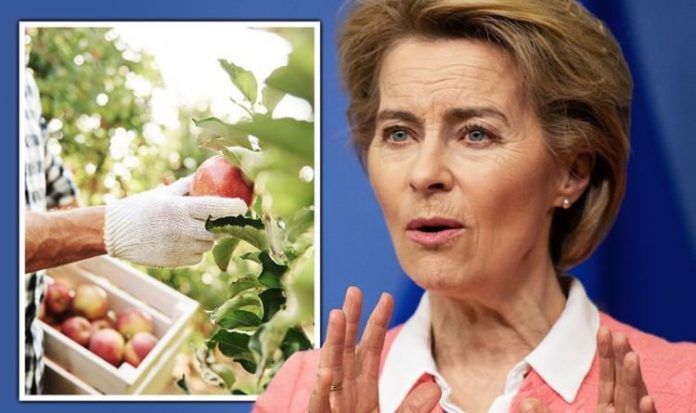After almost a year of negotiations and multiple missed deadlines, Britain and the EU finally secured a post-Brexit trade deal. Announced on Christmas Eve, Prime Minister Boris Johnson described it as a “jumbo Canada-style” deal and declared: “All our red lines about returning sovereignty have been achieved. “Everything that the British public were promised during the 2016 referendum and in the general election last year is delivered by this deal.
“The deal is fantastic news for families and businesses in every part of the UK. We have signed the first free trade agreement based on zero tariffs and zero quotas that has ever been achieved with the EU.”
Two days before the end of the transition period on January 1, MPs overwhelmingly approved the agreement in a parliamentary vote.
As Britain begins its new chapter outside the bloc, in an exclusive interview with Express.co.uk, Conservative MP John Redwood revealed how a largely forgotten British industry is now looking forward to a “Brexit-bounce”.
In 1973, former Prime Minister Edward Heath took Britain into the European Economic Community (EEC) – the precursor to the EU.
Soon afterwards, it became apparent that EEC regulations caused an increase in prices for essential commodities such as food, clothing and fuel.
And, according to Mr Redwood, they also led to the slow death of England as an apple-growing country.
Mr Redwood said: “I remember the structure of our orchards very well.
“I am originally from Kent, and I remember it being called the ‘garden of England’.
“There were many, many orchards, producing not just Bramleys but also the famous Cox and other great eating apples.”
He added: “But the EU paid big grants to get us to grub up hundreds of orchards, giving priorities to continental ones… which, of course, they favoured.
“We need to reverse that process and offer grants and assistance.
JUST IN: Brexit trade deal ‘copied and pasted’ from EU’s playbook
“Fruit farmers in England have had a tough time.
“But we believe that people will fall in love with English apples again.”
She added in her interview with The Guardian: “So many apple farmers are taking their trees out in this country [because they’re not commercially viable].
“[But] once you’ve taken an orchard out, it’s very hard to get it back in again. It takes a long time to get an apple tree back into fruition. We’ve made the choice to stay in [the sector] and expand [into other areas]. We’re thinking long term.
“Hopefully we can start to turn the tanker around.”
An Express.co.uk reader reinforced Mr Redwood and Ms Starkey’s claims, arguing that after Britain joined the EEC, an early Brussels regulation was that apples from Britain were to comply with their strict size limit.
He said: “This meant that overnight eight tasty and smaller varieties of Kent-grown apples were too small for export to Europe and so fell out of the market.
“Funnily enough the Brussels ideal size of apple matched that of the French Golden Delicious.”
It is not the first time the EU has been accused of favouring France.
During a debate with fellow Labour MP Roy Jenkins before the 1975 referendum on EEC membership, left-wing veteran Tony Benn argued that the Common Agricultural Policy (CAP) was a “siege economy” designed to favour the French and harm Britain.
He explained: “The Common Agricultural Policy is a siege economy for French farmers.
“Nobody argues that because French farmers are uncompetitive, there is overmanning and they should be laid off.
“Every country is losing people in the land but the fact is that the French agricultural system is a protected system and, if cheaper staff come in from the outside, its prices are raised to French levels and then we pay the price.
“Now, that doesn’t happen with cars.
“We don’t have a car mountain and, as a Birmingham MP, it would be rather attractive I would have thought, but we don’t.”
Regarding the surge in food prices, he added: “We have butter mountains and beef mountains because the Common Agricultural Policy was developed to benefit the French and if you read [Charles] de Gaulle’s famous veto speech, he said the CAP would be a crashing burden on the British economy.
“He never thought that Mr Heath would go on his knees and accept it.”







